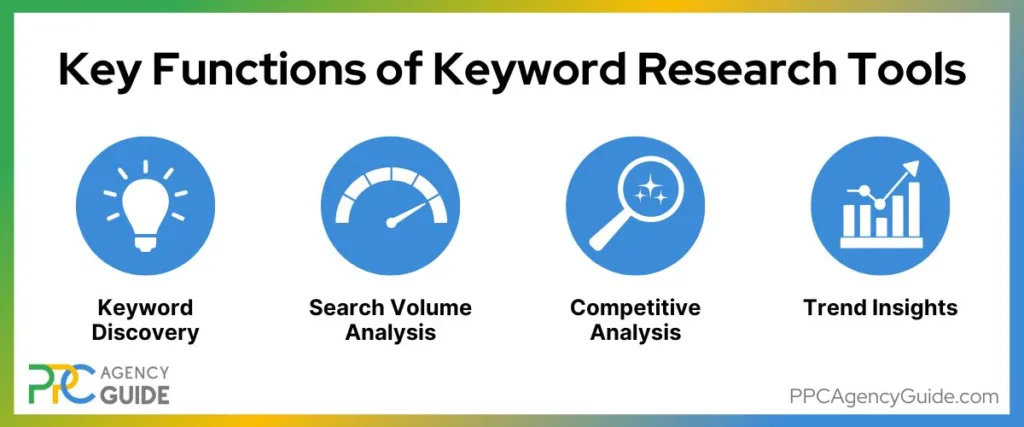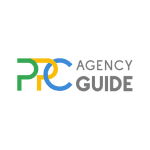
Imagine discovering a tool that could transform your PPC campaigns from hit-or-miss to bullseye-precision overnight. In the world of digital advertising, where every click counts and competition is fierce, such a tool doesn’t just offer an edge—it redefines the game.
For small and midsized businesses navigating the digital marketplace, this isn’t just a hypothetical scenario. The evolution of PPC keyword research tools has made it a tangible reality. These tools are not just about finding the right keywords; they’re about unlocking the full potential of your advertising efforts, ensuring that every dollar spent is an investment toward reaching your most valuable audience.
The quest for precision in PPC is more than a strategy; it’s a necessity in today’s saturated online environment. With the right approach and tools, businesses can rise above the noise, connect with their target audience, and achieve remarkable results. This guide explores the top PPC keyword research tools that offer the promise of enhanced campaigns through precision targeting, providing a beacon for those seeking to optimize their digital advertising strategies.
The Crucial Role of Precision Targeting
In the complex world of pay-per-click (PPC) advertising, precision targeting stands out as a cornerstone for success. The principle is straightforward yet powerful: the more accurately you can target your ads, the higher your chances of engaging with individuals genuinely interested in what you offer. This accuracy not only elevates the efficiency of your ad spend but also significantly enhances the likelihood of conversions.
But why is precision targeting so critical? In an era where digital ad space is both crowded and competitive, cutting through the noise and reaching your specific audience is invaluable. It’s not just about reaching a wide audience but the right audience. Precision targeting enables businesses to focus their efforts on users based on detailed criteria, such as demographics, interests, search behaviors, and more, making every ad click a step closer to a potential conversion.
Moreover, the advent of sophisticated PPC keyword research tools has transformed precision targeting from a challenging task into a manageable and highly rewarding strategy. These tools offer deep insights into search trends, keyword effectiveness, and competitive landscapes, empowering advertisers to make informed decisions that align closely with their target audience’s needs and interests.
Enhancing Precision Targeting with Keyword Research Tools
Achieving precision in PPC targeting is a nuanced process that requires insight, strategy, and the right set of tools. Keyword research tools are invaluable in this context, offering a bridge between advertisers’ offerings and their target audience’s search queries. By leveraging these tools, marketers can uncover the exact phrases and questions their potential customers use, aligning their campaigns with the audience’s intent and interests.
Key Functions of Keyword Research Tools

- Keyword Discovery: Unveil a wide array of keywords related to your product or service, including long-tail keywords that offer higher conversion potential due to their specificity.
- Search Volume Analysis: Understand the popularity of specific keywords, helping prioritize efforts towards terms with significant search volume yet manageable competition.
- Competitive Analysis: Spy on competitors’ keyword strategies to identify gaps in your strategy and opportunities to capture market share.
- Trend Insights: Stay ahead of the curve by identifying emerging trends and seasonal fluctuations in keyword popularity.
Top Tools for Precision Targeting
- Google Keyword Planner: A staple for any PPC campaign, Google Keyword Planner offers deep insights into keyword search volume and competition directly from the platform’s extensive search data.
- SEMrush: Provides a comprehensive suite of tools, including SEMrush Keyword Magic.
- Ahrefs: Known for its robust backlink analysis tool, Ahrefs also offers a powerful keyword research tool that helps uncover keywords competitors are ranking for.
- Moz Keyword Explorer: Get unique metrics like keyword difficulty and organic CTR for a holistic view of keyword viability with Moz Keyword Explorer.
- SpyFu: Excellent for competitive keyword research, SpyFu allows you to see the most lucrative keywords used by competitors.
- UberSuggest: A user-friendly tool that provides keyword suggestions, SERP analysis, and SEO metrics, UberSuggest is ideal for small businesses looking to enhance their online presence.
Each of these tools has unique strengths, catering to various aspects of PPC campaign management and optimization. The right tool can streamline the keyword selection process and provide strategic insights that can significantly improve campaign performance.
By integrating these tools into your PPC strategy, you can achieve a level of precision targeting that was once thought impossible, ensuring that your ads reach the most relevant audience at the right time with the right message.
Best Practices for Maximizing Effectiveness
With an arsenal of PPC keyword research tools at your disposal, the next step is to leverage them effectively. Here are best practices that ensure your efforts in precision targeting pay off.

- Regularly Update Keyword Lists: Search trends evolve, and so should your keyword strategy. Regularly reviewing and updating your keyword lists ensures your campaigns remain relevant and effective. Use a structured audit approach to identify opportunities for improvement in our PPC Audit Guide.
- Focus on Long-Tail Keywords: Long-tail keywords comprise 70 percent of all search traffic, according to Moz. They are more specific and less competitive, making them more likely to attract highly interested audiences. They often lead to better conversion rates and lower costs per click.
- Utilize Negative Keywords: Prevent your ads from appearing for irrelevant searches by using negative keywords. This helps save your budget for searches that are more likely to convert.
- Analyze Competitor Strategies: Use tools like SpyFu and SEMrush to analyze your competitors’ keyword strategies. Understanding what works for them can provide insights into potential opportunities for your campaigns.
- Test and Refine: PPC is not a set-it-and-forget-it affair. Continuously test different keywords, ad copy, and landing pages. Use the data from your A/B tests to refine your approach, focusing on what delivers the best results.
- Prioritize Quality Over Quantity: It’s not about targeting as many keywords as possible but the right ones. Quality keywords that are highly relevant to your audience will drive more meaningful results than a larger number of less relevant keywords.
- Monitor Performance and Adjust Budgets Accordingly: Keep a close eye on the performance of your keywords and adjust your budgets to focus on those delivering the best ROI. Efficient budget allocation can significantly enhance campaign effectiveness.
By following these best practices, you can maximize the impact of your PPC campaigns, ensuring that your investment in keyword research tools and precision targeting delivers the highest possible returns.
Working PPC Keyword Research Tools into Your Budget
Investing in PPC keyword research tools can seem daunting, especially for small and midsized businesses operating on tight budgets. However, the value these tools bring in enhancing the precision of your campaigns can far outweigh the initial cost. Here are strategies to maximize their value cost-effectively.
- Leverage Free Versions or Trials: Many tools offer free versions or trial periods that provide valuable insights without the upfront cost. Starting with these can help you gauge the tool’s value to your campaigns before committing to a subscription.
- Focus on Essential Features: Determine which features are most critical to your PPC goals and select a tool that offers these at the best price point. Not all campaigns require the most advanced features.
- Combine Tools for Comprehensive Analysis: Sometimes, a combination of more affordable or free tools can provide a comprehensive overview comparable to premium solutions.
- Allocate Budget Based on ROI: Evaluate the ROI these tools bring to your campaigns. A tool significantly reducing wasted ad spend or increasing conversions can justify its cost.
- Share Costs Where Possible: If you’re part of a professional network or community, consider sharing access to premium tools (while respecting the tool’s terms of service) to distribute the cost.
By adopting these strategies, businesses can mitigate the high cost of PPC keyword research tools, ensuring that the investment enhances campaign precision and overall returns.
Get Expert Help with PPC Keyword Research and More
As we’ve explored throughout this guide, precision targeting is not a luxury in today’s digital marketing landscape; it’s a necessity. Quality PPC keyword research can transform your campaigns, allowing you to reach your target audience more effectively and efficiently than ever before. While the tools outlined here can help, they’re only part of the PPC management equation. If you’d like to supercharge your PPC results by working with a pro, request a complimentary consultation.


















